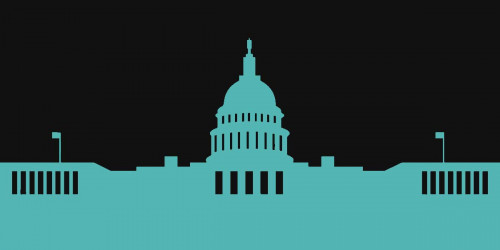On March 15, 2020, Section 215 of the PATRIOT Act—a surveillance law with a rich history of government overreach and abuse—expired due to its sunset clause. Along with two other PATRIOT Act provisions, Section 215 lapsed after lawmakers failed to reach an agreement on a broader set of reforms to the Foreign Intelligence Surveillance Act (FISA).
In the week before the law expired, the House of Representatives passed the USA FREEDOM Reauthorization Act, without committee markup or floor amendments, which would have extended Section 215 for three more years, along with some modest reforms.
As any cartoon viewer knows, in order for any bill to become law, the House and Senate must pass an identical bill, and the President must sign it. That didn’t happen with the USA FREEDOM Reauthorization Act. Knowing that House’s bill would fail in the Senate, Senate Majority Leader Mitch McConnell brought a bill to the floor that would extend all the expiring provisions for another 77 days, without any reforms at all. Senator McConnell's extension passed the Senate without debate.
But the House of Representatives left town without passing Senator McConnell’s bill. That meant that Section 215 of the USA PATRIOT Act, along with the so-called lone wolf and the roving wiretap provisions expired. Section 215 is best known as the law the intelligence community relied on to conduct mass surveillance of Americans’ telephone records, a program held to be likely illegal by two federal courts of appeals. It has other, largely secret uses as well.
But is it dead?
Although Section 215 and the two other provisions have expired, that doesn’t mean they’re gone forever. For example, in 2015, during the debate over the USA FREEDOM Act, these same provisions were also allowed to expire for a short period of time, and then Congress reauthorized them for another four years. While transparency is still lacking in how these programs operate, the intelligence community did not report a disruption in any of these “critical” programs at that time. If Congress chooses to reauthorize these programs early in the new Congress, this lapse in 2020 may not have much of an overall impact.
In addition, the New York Times and others have noted that Section 215’s expiration clause contains an exception permitting the intelligence community to use the law for investigations that were ongoing at the time of expiration or to investigate “offenses or potential offenses” that occurred before the sunset. Broad reliance on this exception would subvert Congress’s will when it repeatedly included sunset provisions to cause Section 215 to expire, and the Foreign Intelligence Surveillance Court should carefully—and publicly—circumscribe any attempt to rely on it.
EFF has repeatedly argued that if Congress can’t agree on real reforms to these problematic laws, they should be allowed to expire and stay that way. While we are pleased that Congress didn't mechanically reauthorize Section 215, it is only one of a number of largely overlapping surveillance authorities. And with a new Congress and a new Administration, the House and the Senate should take this unique opportunity to learn more about these provisions and create additional oversight into the surveillance programs that rely on them. The expired provisions should remain expired until Congress enacts the additional, meaningful reforms we’ve been seeking.
To be clear, even the permanent loss of the current version of the law will still leave the government with a range of tools that are still incredibly powerful. These include other provisions of FISA as well as surveillance authorities used in criminal investigations, many of which can include gag orders to protect sensitive information.
But allowing Section 215 and the other provisions to expire in 2020 means that Congress has the opportunity to discuss whether these authorities are actually needed, without the pressure of a ticking clock.
You can read more about what EFF is calling for when it comes to reining in NSA spying, reforming FISA, and restoring Americans’ privacy here.
This article is part of our Year in Review series. Read other articles about the fight for digital rights in 2020.














